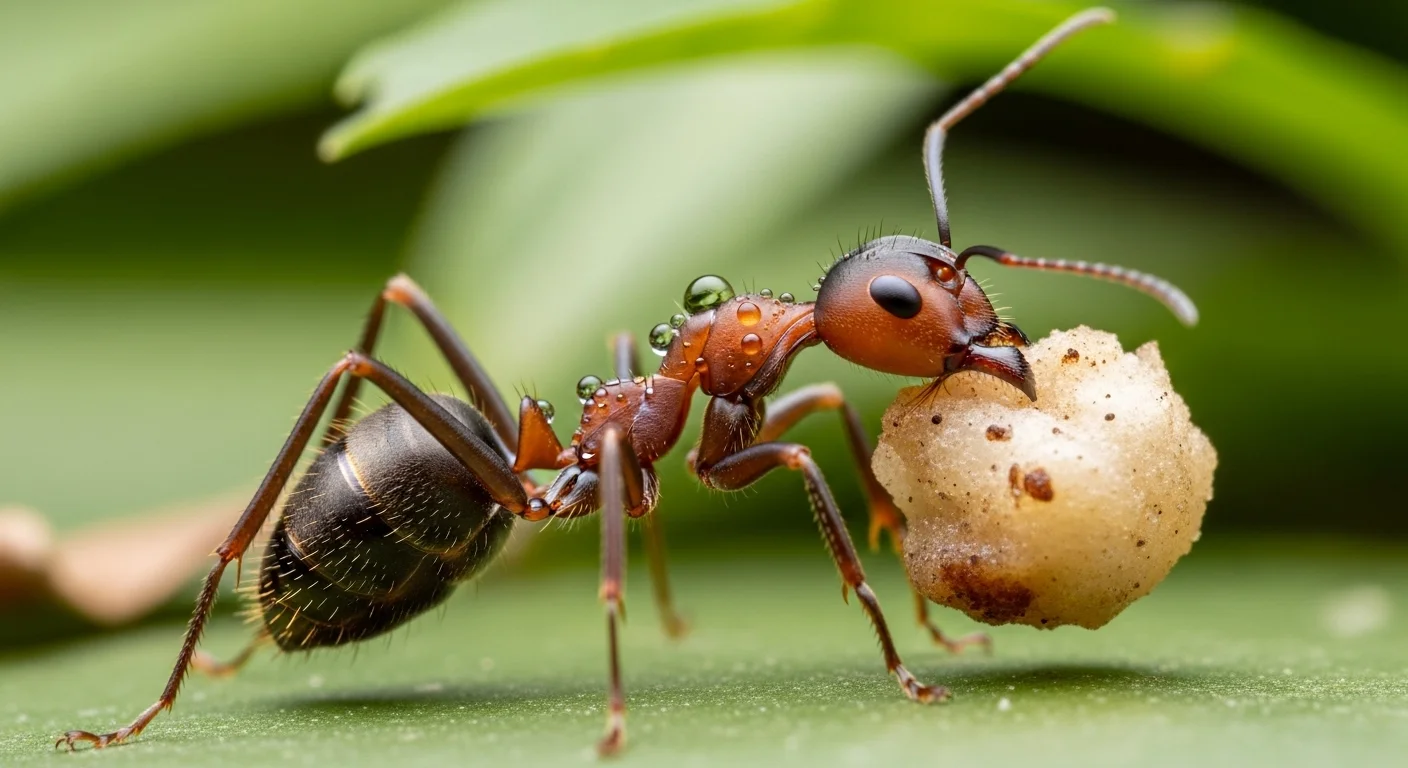Edible Ants: A Global Delicacy or Illegal Food Trend?
The world of edible insects is buzzing with possibilities, and ants are emerging as a fascinating, albeit sometimes controversial, food source. While some cultures embrace ants as a delicacy, others strictly prohibit their consumption. This begs the question: are edible ants a sustainable food trend or a risky, potentially illegal, culinary adventure?
The Nutritional and Gastronomic Appeal of Ants
Despite being small, ants pack a nutritional punch. They are a good source of protein, with some species containing 30-50% protein by dry weight. They also offer essential fats, fiber, and minerals. Beyond their nutritional value, ants offer a diverse range of flavors and textures, making them gastronomically interesting.
- Variety of Flavors: Different ant species offer unique taste profiles. For instance, one type of ant found in Mexico is said to have a nutty and oily flavor. Common black ants can exhibit a savory and acidic taste.
- Culinary Uses: Ants are used in various forms, from whole roasted ants to ant eggs, which are considered a delicacy in some regions.
Ants in Global Cuisine: A Look at Different Cultures
Across the globe, numerous countries have integrated ants into their culinary traditions.
- Mexico: Honey ants, with their abdomens full of sweet liquid, are enjoyed as a dessert.
- Colombia: Large ants are roasted and consumed as a snack, similar to nuts.
- Thailand: Ant eggs are considered a high-end ingredient, often referred to as "jungle caviar."
- China: Black ants are sometimes steeped in alcohol to create medicinal liquors.
These examples demonstrate the diverse ways in which ants are used and appreciated as a food source in various cultures.
The Legal Landscape: Why Ants Are Banned in Some Regions
Despite their culinary appeal and nutritional benefits, ants are not universally accepted as food. In some countries, like South Korea, selling food containing ants is illegal. This is often due to concerns about safety and regulation.
- Toxicity Concerns: Some ant species are poisonous and therefore unsuitable for consumption.
- Lack of Regulation: The diverse range of ant species and the complex supply chains make it challenging to ensure safety and quality control.
- Food Safety Regulations: Regulatory bodies, like the food safety authority in South Korea, often do not recognize ants as an approved food ingredient, requiring specific approval processes for any new food source.
Recently, a restaurant owner in South Korea faced legal repercussions for using imported dried ants in their dishes. The ants, sourced from countries where they are commonly consumed, were used to add a "sour" flavor to certain dishes. While the owner reportedly generated significant revenue from these dishes, the use of unapproved ingredients led to legal action.
The Future of Edible Ants: A Question of Regulation and Acceptance
The case highlights the complexities surrounding the use of ants as food. While some cultures have a long history of consuming ants safely, regulatory bodies require stringent safety assessments before widespread adoption can occur. To gain wider acceptance, the edible ant industry must address concerns regarding:
- Species Identification: Accurate identification of edible and poisonous ant species is crucial.
- Sustainable Harvesting: Practices must be implemented to ensure the sustainable harvesting of ant populations.
- Quality Control: Standardized processing and packaging methods are needed to guarantee the safety and quality of ant-based food products.
Ultimately, the future of edible ants depends on establishing clear regulations and building consumer trust. Whether they become a mainstream delicacy or remain a niche food item remains to be seen.




